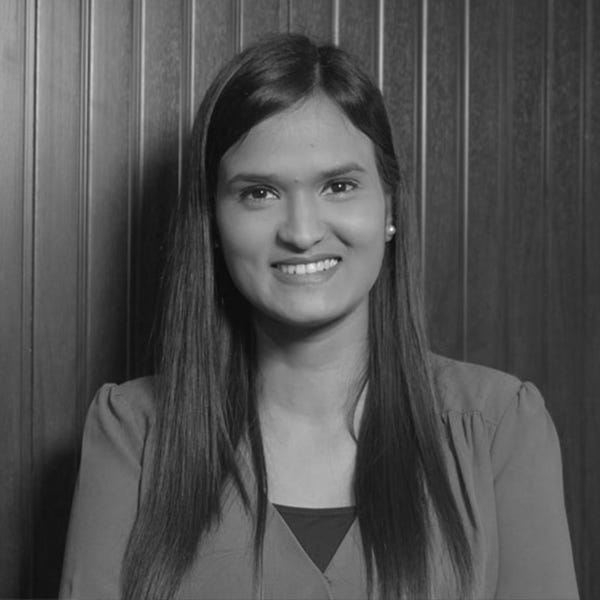2019
Why having a mentor you can trust matters
We spoke to Swati Pandey, the laureate of the 2018 Cartier Women’s Initiative, and Meena Vaidyanathan, the founder of Niiti Consulting and Swati’s mentor about their mentor-mentee relationship.
This blog post is part of a series that will be devoted to the mentor-mentee relationship within the Cartier Women’s Initiative community.
In June, we spoke to Swati Pandey, the laureate of the 2018 Cartier Women’s Initiative (CWI) and Meena Vaidyanathan, the founder of Niiti Consulting and Swati’s CWI mentor about their mentor-mentee relationship.
1. How did your mentoring relationship start off back in September 2018 and how has it evolved since then?
Swati (laureate): In the beginning, it took us about two months to connect in person. We connected much better once we had met in person than over emails. Since then, we have been discussing more than just business, but also personal stories and Meena became the person who is just a message away.
Meena (CWI Mentor): I insisted on the meeting because I didn’t want to start off our relationship over an email. We have met about 7 times in the last 9 months. When we meet, as Swati mentioned, besides business, we talk to understand each other’s personal and professional lives.
2. Based on your experience, what is essential in a mentor-mentee relationship to make it work?
Meena: The mentor-mentee relationship is different from a formal relationship where there is a clear give and take, it goes beyond that. I believe that the mentor needs to feel the need to give and the mentee needs to feel the value in what s/he is getting out of the relationship. The mentee needs to value the advice that the mentor is giving. So from that perspective, the mentor-mentee relationship is less formal, but more productive, than a very structured relationship.
3. To what extent do you find it important to have mentors with similar areas of expertise as well as a wide pool of network for mentees?
Meena: I think it’s useful to have mentors who understand the business and have domain knowledge or area expertise. I feel that I am able to understand Swati’s business and her challenges a lot more because I’ve been in that space. I believe that in a mentor-mentee relationship, the best thing that you can really give your mentee is your experience, even more than your knowledge.
Swati: One thing I really like about Meena is that there is no ego involved here. She is obviously a very accomplished professional, but she always keeps me in mind. For example, if she meets someone new that she knows will be a useful contact to us in the future, she would connect us with her contact in anticipation of our needs.
4. Some say the mentor-mentee relationship can be one-way where a mentor gives advice and a mentee takes it. Would you agree, Meena?
Meena: I think it’s a two-way relationship. I get to benefit from this relationship too. I get to learn when Swati tells me about new ideas and concepts. It really helps that we are both in the same area which is our strength.
5. Do you think it made a difference having a female mentor?
Swati: Absolutely. I remember I was talking with Cartier community members about how lonely the entrepreneurship journey can be. Sometimes, you don’t need professional advice, but just somebody who understands what it is like being there and who has experienced something similar and who tells you that it’s going to be fine. So it made a lot of difference having Meena, a woman entrepreneur who has gone through similar issues.
Meena: When Swati shared issues she was facing I realized 50% of them are issues that I faced when I started out: Being a woman, being an entrepreneur, being in a space that was very male dominated.
6. What would encourage someone to mentor?
Meena: Firstly, I value the fact that I can make a difference in somebody’s life and that I can be valued in return for it. If I feel that the mentee also takes the value and uses it, it incentivizes me even more to give my best. Secondly, I value the opportunity to meet with new people who think differently from me. Through these mentoring relationships, I have gotten to understand, to connect at a closer level and to learn a lot from different people.
7. Moving forward, how do you see this relationship evolving in the long term?
Swati: I am confident that this is going to be a long-term relationship. I don’t really see it from a transactional perspective and I really value this relationship and the trust that we have. Most of the time, your mentor does not have any incentive or vested interest in the advice that they give you, they are only giving it to you because they are invested in you as a person and want to see you grow on a professional and personal level.

ABOUT THE AUTHOR :
MEENA VAIDYANATHAN
Meena Vaidyanathan is a social entrepreneur, biotechnologist, change management consultant and visiting faculty on sustainable management and social entrepreneurship. She has had a wide variety of hands on experiences in the field as well as in crafting public policy that enables her and her team at Niiti Consulting to drive social change in a sustainable manner..

ABOUT THE AUTHOR :
SWATI PANDEY
Swati Pandey is the CEO and Co-founder of Arboreal - an award winning plant biotechnology company focused on creating a diabetes free world. Arboreal has combined advanced scientific R&D and proprietary innovations with a traceable, sustainable and scalable supply chain to reinvent Stevia - a 100% natural, zero calorie sweetener that comes from a plant source. Her prior professional experience includes international stints in VC, Investments, Consulting and O&G sectors in EU, UK, Singapore and India.